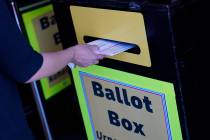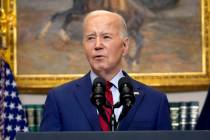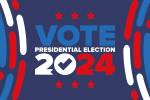ESAs nothing like vouchers
Calling Nevada's new Education Savings Accounts vouchers doesn't make them vouchers.
This is the fatal weakness of a lawsuit filed Thursday by the American Civil Liberties Union of Nevada in Clark County District Court. The action, which seeks to kill the country's strongest school choice law before it ever has a chance to work, completely misrepresents ESAs, which are fundamentally different from school vouchers.
Nevada's ESAs, passed this year by the Nevada Legislature and signed into law by Gov. Brian Sandoval, allow parents to remove their children from public schools and control the state funding that supported their enrollment: up to $5,700 per year, per child. Thousands of Nevada families have applied for the accounts, which will receive their first distribution next year. Although the money can be used for a wide range of educational expenses, from distance learning to tutoring to technology, there's no doubt that a lot of families will use the money to enroll their children in parochial schools.
This is the basis of the ACLU lawsuit, which correctly argues that the Nevada Constitution prohibits the use of public funds on sectarian education. And a school voucher program would indeed be unconstitutional in Nevada if parochial schools were allowed to accept them, because vouchers amount to direct payments from the government to a private school.
But the ACLU lawsuit incorrectly uses the word "voucher" or the label "Voucher Program" dozens of times in seeking to have Nevada's ESAs erased from existence. ESAs are not vouchers. ESAs are controlled by parents, not the state. Once state money is transferred into the accounts, it's no longer the public's money, and as such it's perfectly constitutional for parents to choose to spend the money at a religious school.
The distinction matters. Arizona's ESAs were upheld as constitutional, even though the Arizona Constitution, like Nevada's, contains a prohibition on the use of state education funds for religious purposes. "ESA is neutral in all respects toward religion and directs aid to a broad class of individuals without reference to religion," the Arizona Court of Appeals ruled in upholding a lower-court decision. (The state Supreme Court subsequently refused further appeal of the case.)
The lawsuit already has drawn national attention. Thursday's filing brought a flurry of tweets and statements from school choice advocates and anti-choice liberals around the country. The Institute for Justice, a libertarian public-interest law firm, announced it would intervene to defeat the lawsuit and protect ESAs.
I expected the state's education establishment and liberal forces to try to squash school choice. That the ACLU would bring this lawsuit is a huge disappointment to anyone who values individual rights. The lawsuit, underpinned by plaintiffs of dubious standing, attacks parochial education for providing enrollment preferences to parishioners. Private religious organizations exercising their First Amendment rights under the protection of the same constitution the ACLU claims to champion? The horror!
The ACLU also makes the bogus argument that ESAs will hurt public education across the state by promoting competition (as if public education in Nevada could perform any worse). It's telling that the ACLU doesn't seek to make parochial schools ineligible for ESA funds while preserving the program for all other educational expenses. The lawsuit seeks to kill the entire law and prohibit the use of ESA funds on all sorts of nonreligious educational expenses. The ACLU favoring state power over parental choice? Brutal.
Nevada's ESAs aren't vouchers, no matter how many times the ACLU says they are. And the courts will agree.
Glenn Cook (gcook@reviewjournal.com) is the Las Vegas Review-Journal's senior editorial writer. Follow him on Twitter: @Glenn_CookNV. Listen to him Mondays at 10 a.m. on "Live and Local — Now!" with Kevin Wall on KBET 790 AM.























